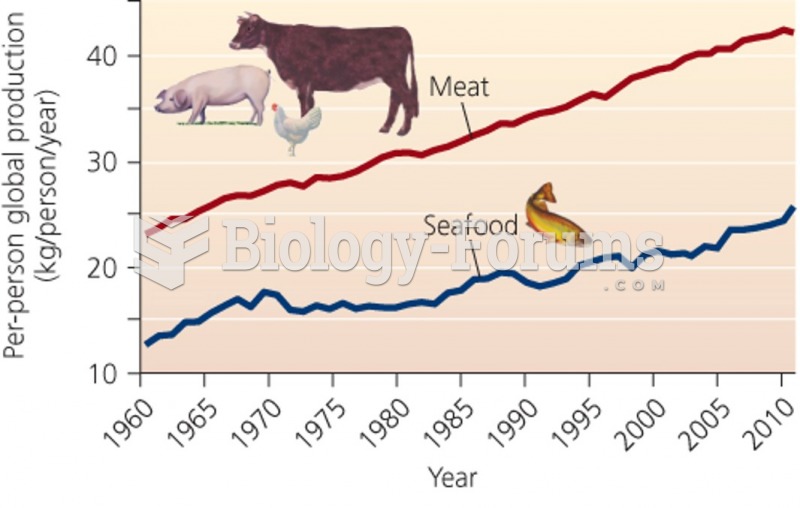|
|
|
Did you know?
The first monoclonal antibodies were made exclusively from mouse cells. Some are now fully human, which means they are likely to be safer and may be more effective than older monoclonal antibodies.
Did you know?
The human body produces and destroys 15 million blood cells every second.
Did you know?
There are more sensory neurons in the tongue than in any other part of the body.
Did you know?
Fungal nail infections account for up to 30% of all skin infections. They affect 5% of the general population—mostly people over the age of 70.
Did you know?
There are approximately 3 million unintended pregnancies in the United States each year.







